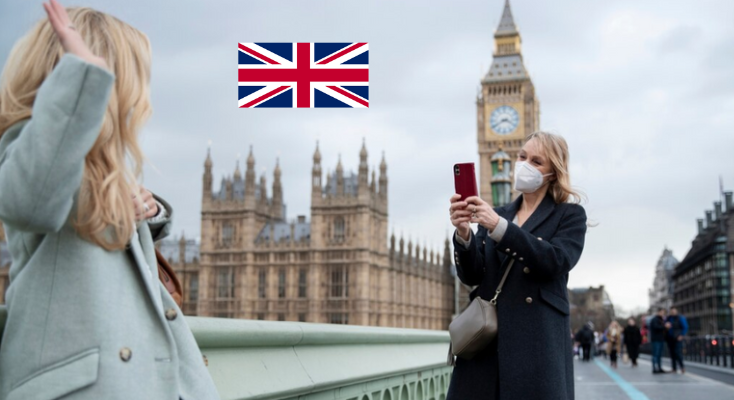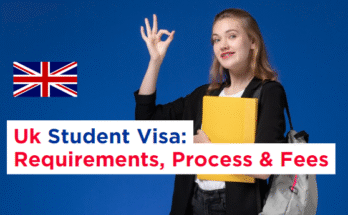There are many immigration routes to Britain. Which route you choose depends on several factors, such as length of stay, nationality, and personal circumstances. Danielle Cohen’s attorneys can practice in a variety of immigration matters. This article therefore explains the options you have to stay in or come to Great Britain.
(1) EEA nationals: post-Brexit immigration policy
After Britain’s decision to leave the European Union’s billing scheme, it was introduced to grant the right of residence to EEA nationals living in Great Britain. Therefore, EU nationals living in Great Britain must apply for the scheme by June 30, 2021, to obtain settled or previously settled status.
The differences between these two states are contained in the following points:
- If you have lived in the UK continuously for five years before June 30, 2021, you will be granted settled status. If you have not earned five years of continuous residency, you will receive standard status.
- If you have status, you can stay outside Britain for up to five consecutive years without losing your status. People with standard status can stay outside Britain for up to two consecutive years without losing their status.
- Once you have settled, any children born in Britain while you are living there will automatically be British citizens. If you are granted pre-settled status, all children born in Britain will automatically be given pre-settled status, but not British citizenship.
Read Also: Types of UK work visas: details of specific requirements
Family members from the EEA, persons with retained rights of residence, and primary caregivers can also rely on the settlement scheme. The login link is found here.
If you are from outside Britain and want to come to Britain, you can apply for this family consent.
This allows you to enter the UK for 6 months. During this six-month period, you can leave and re-enter the UK as many times as you like. Most importantly, to get a family permit, you must be a non-EEA citizen who is a family member of an EEA or Swiss citizen.
(2) Applications according to Annex FM
Since FM attack The provisions of the Immigration Rules provide a framework for claims based on family or private life. Under these rules, a person who wants to stay in Britain or join their family must apply.
So these are the categories of people to whom the FM administration rules apply: young couples; civil partnerships; unmarried partners who have lived together in a similar marriage for at least 2 years; victims of domestic violence; children of a person with a limited residence permit; parents; independent adult relatives.
An application under the rules of Appendix FM may relate to an entry permit or a residence permit.
To apply, you must prove your relationship with your sponsor (for example, a relative in Britain) and demonstrate that you comply with other policy provisions.
Other basic requirements include: financial requirements; the requirement to ensure a reasonable remedy; and the language requirement. These requirements are explained in more detail here.
(3) Applications per point system
The UK fully introduced a points-based system (PBS) for non-EEA nationals in 2010, and the government has announced plans to extend the policy to EEA nationals after the end of the UK-EU transition period. To enter Britain on a points-based visa, an applicant must accumulate the correct number of points that meet certain criteria. The score varies depending on the level of application, and Danielle Cohen Solicitors has experience applying at all levels. Click here to analyze the five levels.
Registration under PBS is important for those wanting to come to Britain.
- The self-employed
- A working person
- A student
Level 1: For those who want to be self-employed in Britain, the important fact is that the initial visa extension was introduced in 2019. Other Tier 1 visas include the Investor Visa and the Exceptional/Promising/Talented Visa.
Those coming to Britain on an investor visa must be prepared to invest at least £2 million in British companies. Exceptional Talent/Promise visas are granted to immigrants who have achieved or are developing significant success in their field. Indeed, an applicant must be approved by the relevant “authority” to apply (this could be the Royal Society, Royal Academy of Engineering, British Academy, British Fashion Council, Arts Council, Tech Nation, or Royal Institute of British Architects). for a visa.
Level 2 visa for skilled work They are intended for ‘qualified workers’ who have a job offer in Britain from an employer with a sponsor license.
Danielle and her team of lawyers can prepare individual visa applications and applications for employer permits. The costs for each are listed on the website.
Tier 5 visas are approximate work visa arrangements and are divided into six substrates:
- Creative and sporty
- Visa for humanitarian work
- Religious work visa
- State-authorized exchange officials
- Mobility plan for young people
International students can study at a British university after completing Level 4 student performance.
The key requirements for this visa are that the applicant has been offered an unconditional place on a course offered by an approved Level 4 sponsor; they can prove their English language skills; and they have enough money to support and pay for the course.
(4) Claims based on the protected person
Those who have fled to Britain for protection must file a soasylum application. It is generally advisable to apply for asylum as soon as possible after entering Britain. A successful asylum application grants refugee status and permission to reside in Britain.
The process of obtaining asylum can be long and complicated. At the Law Office of Danielle Cohen, we gather evidence, refer experts (if necessary), prepare clients for interviews, and file and write the necessary documents to ensure you win your claim.
Read Also: Permanent Residence in the UK: How to Apply
Danielle has also made successful claims for her clients outside of immigration rules. This type of application is suitable if there are insurmountable obstacles to your return to your country of origin, and it may be recommended if the criteria for asylum are too difficult to prove. Similarly, Danielle has experience successfully applying for stateless status for those who have not obtained citizenship of any country.
(5) Short and long stays
Those who do not wish to live or work in Britain for a longer period of time but would like to come as a visitor for (usually) 6 months or less should contact us for visa applications for visitors.
For a general visitor visa, the main things that need to be proven are: the applicant will leave the UK at the end of the visit; the applicant is actually coming to the United Kingdom as a visitor; and the applicant has resources and accommodation for the intended trip.
There are other special visas for those who want to visit Britain: to receive private medical care; to get married; to enter into a registered partnership; and to make short-term studies.
Finally, to become a permanent resident of Britain, you must earn a permanent residence permit or long-term stay. This can be achieved in a number of ways and usually requires a certain period of continuous residence in the UK.
A successful application for a permanent residence permit is, above all, an application for British citizenship through a process called naturalization. The process by which children become British citizens is registration; Danielle and her team can handle both types of applications.



